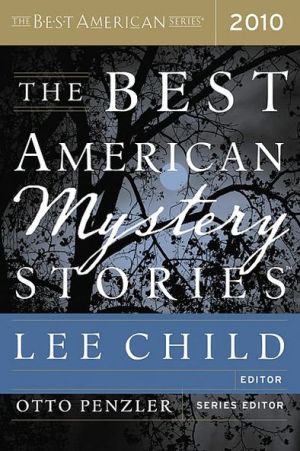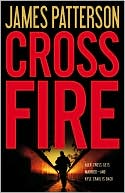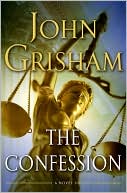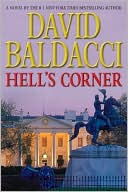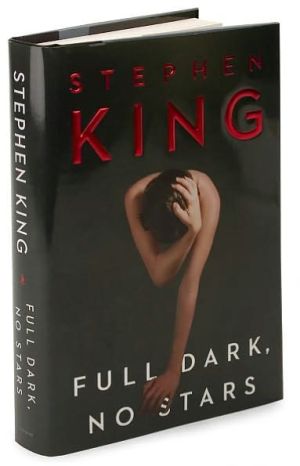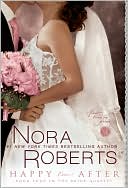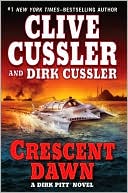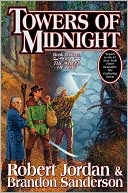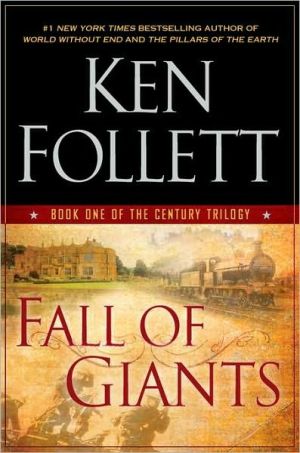The Best American Mystery Stories
Best-selling novelist Lee Child edits this latest collection of the genre’s finest from the past year. Featuring “gritty tales told with panache,” this is a “must-read for anybody who cares about crime stories” (Booklist).
Search in google:
Best-selling novelist Lee Child edits this latest collection of the genre’s finest from the past year. Featuring “gritty tales told with panache,” this is a “must-read for anybody who cares about crime stories” (Booklist).Publishers WeeklyThe 20 short stories in the 14th edition of this "best of" series offer a wider variety than some of its predecessors. Sherlockians who have not yet encountered Lyndsay Faye will be more than pleased by her pastiche, "The Case of Colonel Warburton's Madness," which allows the sleuth to solve the mystery from an armchair. Jay Brandon makes clever use of his research into the history of San Antonio in "A Jury of His Peers," which centers on the Mexican Army's expulsion of all of the city's attorneys in 1842. Lynda Leidiger's "Tell Me" movingly portrays the horrific aftermath of a rape and attempted murder. Doug Alleyn's "An Early Christmas" proves that excellent traditional whodunits, which have been underrepresented in recent years, are still being written. Other contributors include Dennis Lehane, Phillip Margolin, and Jon Land. While this volume contains relatively few household names, the quality certainly doesn't suffer as a result. (Oct.)
\ From Barnes & NobleThe Fan Letter by Lee Child \ They say the past is another country, and in my case it really was: provincial England at the end of the fifties and the start of the sixties, the last gasp of the post-war era, before it surrendered to the tectonic shift sparked by the Beatles. My family was neither rich nor poor, not that either condition had much meaning in a society with not much to buy and not much to lack. We accumulated toys at the rate of two a year: one on our birthdays, and one at Christmas. We had a big table radio (which we called "the wireless") in the dining room, and in the living room we had a black and white fishbowl television, full of glowing tubes, but there were only two channels, and they went off the air at ten in the evening, after playing the National Anthem, for which some families stood up, and sometimes we saw a double bill at the pictures on a Saturday morning, but apart from that we had no entertainment.\ So we read books. As it happens I just saw some old research from that era which broke down reading habits by class (as so much was categorized in England at that time) and which showed that fully fifty percent of the middle class regarded reading as their main leisure activity. The figure for skilled workers was twenty-five percent, and even among laborers ten percent turned to books as a primary choice.\ Not that we bought them. We used the library. Ours was housed in a leftover WW2 Nissen hut (the British version of a Quonset hut) which sat on a bombed-out lot behind a church. It had a low door and a unique warm, musty, dusty smell, which I think came partly from the worn floorboards and partly from the books themselves, of which there were not very many. I finished with the children's picture books by the time I was four, and had read all the chapter books by the time I was eight, and had read all the grown-up books by the time I was ten.\ Not that I was unique - or even very bookish. I was one of the rough kids. We fought and stole and broke windows and walked miles to soccer games, where we fought some more. We were covered in scabs and scars. We had knives in our pockets - but we had books in our pockets too. Even the kids who couldn't read tried very hard to, because we all sensed there was more to life than the gray, pinched, post-war horizons seemed to offer. Traveling farther than we could walk in half a day was out of the question - but we could travel in our heads ... to Australia, Africa, America ... by sea, by air, on horseback, in helicopters, in submarines. Meeting people unlike ourselves was very rare ... but we could meet them on the page. For most of us, reading - and imagining, and dreaming - was as useful as breathing.\ My parents were decent, dutiful people, and when my mother realized I had read everything the Nissen hut had to offer - most of it twice - she got me a library card for a bigger place the other side of the canal. I would head over there on a Friday afternoon after school and load up with the maximum allowed - six titles - which would make life bearable and get me through the week. Just. Which sounds ungrateful - my parents were doing their best, no question, but lively, energetic kids needed more than that time and place could offer. Once a year we went and spent a week in a trailer near the sea - no better or worse a vacation than anyone else got, for sure, but usually accompanied by lashing rain and biting cold and absolutely nothing to do.\ The only thing that got me through one such week was Von Ryan's Express by David Westheimer. I loved that book. It was a WW2 prisoner-of-war story full of tension and suspense and twists and turns, but its biggest "reveal" was moral rather than physical - what at first looked like collaboration with the enemy turned out to be resistance and escape. I read it over and over that week and never forgot it.\ Then almost forty years later, when my own writing career was picking up a head of steam, I got a fan letter signed by a David Westheimer. The handwriting was shaky, as if the guy was old. I wondered, could it be? I wrote back and asked, are you the David Westheimer? Turned out yes, it was. We started a correspondence that lasted until he died. I met him in person at a book signing I did in California, near his home, which gave me a chance to tell him how he had kept me sane in a rain-lashed trailer all those years ago. He said he had had the same kind of experience forty years before that. Now I look forward to writing a fan letter to a new author years from now ... and maybe hearing my books had once meant something special to him or her. Because that's what books do - they dig deeper, they mean more, they stick around forever.\ \ \ \ \ \ Publishers WeeklyThe 20 short stories in the 14th edition of this "best of" series offer a wider variety than some of its predecessors. Sherlockians who have not yet encountered Lyndsay Faye will be more than pleased by her pastiche, "The Case of Colonel Warburton's Madness," which allows the sleuth to solve the mystery from an armchair. Jay Brandon makes clever use of his research into the history of San Antonio in "A Jury of His Peers," which centers on the Mexican Army's expulsion of all of the city's attorneys in 1842. Lynda Leidiger's "Tell Me" movingly portrays the horrific aftermath of a rape and attempted murder. Doug Alleyn's "An Early Christmas" proves that excellent traditional whodunits, which have been underrepresented in recent years, are still being written. Other contributors include Dennis Lehane, Phillip Margolin, and Jon Land. While this volume contains relatively few household names, the quality certainly doesn't suffer as a result. (Oct.)\ \ \ "This collection is sure to please mystery fans as well as those who enjoy short stories"—Library Journal\ "The 20 short stories in the 14th edition of this “best of” series offer a wider variety than some of its predecessors...While this volume contains relatively few household names, the quality certainly doesn’t suffer as a result."—Publishers Weekly, STARRED review \ "Penzler’s foreword...in favor of an eclectic mix of tales that exhibit crime in all its varieties in every corner of the world—and then some."—Kirkus Reviews\ \ \ \ \ Thriller author Child is the guest editor for this 14th installment in Otto Penzler's yearly compilation of the best American mystery stories. Published in calendar year 2009, the 20 selections encompass all aspects of mystery, not just the traditional whodunit crime stories, offer everything from Sherlock Holmes-style deduction to surprise endings, and range in tone from the gritty to the refined. The book is organized alphabetically by the author's last name, instead of any thematic or stylistic manner, so each story is radically different from the next. While some of the authors are well-known novelists, including the late Kurt Vonnegut and Gar Anthony Haywood, others are predominantly short story authors. But no matter their background, each has a unique voice for the genre. VERDICT This collection is sure to please mystery fans as well as those who enjoy short stories, but it will not be a good match for those seeking a traditional detective story. [Look for an interview with Penzler, plus his five future masters of noir, in the Sept. 16, 2010, edition of our BookSmack! enewsletter.—Ed.]—Elizabeth Nelson, UOP Lib., Des Plaines, IL\ \ \ \ \ Guest editor Child chooses 20 atmospheric tales whose settings and crimes are all over the map in this 14th entry in Penzler's annual series.\ Crime is everywhere. In teeming Campeche City on the Yucatán, a hit man catches up with a fugitive in Gary Alexander's "Charlie and the Pirates." In Jon Land's "Killing Time," another hitter hides in plain sight at a Connecticut boarding school. R.A. Allen's nomadic waiter, who could be named Robert, seeks sexual fulfillment on Florida's panhandle in "The Emerald Coast"; a Boston priest is accused of sexual misconduct in John Dufresne's "The Cross-Eyed Bear." Lyndsay Faye's Sherlock Holmes pastiche "The Case of Colonel Warburton's Madness" takes Dr. Watson to the home of a San Franciscan fixated on the phantom Mexicans, while Gar Anthony Haywood's "The First Rule Is" explores the relationship between Los Angeles's haves and have-nots. Back on the East Coast, Dennis Lehane unfolds the tender story of a man, a dog and a murder in "Animal Rescue." Moving from North Dakota to Jersey does little to improve a call girl's luck in Allan Tucher's "Bismarck Rules." Russian-born Zhenya, whose father makes sexual exploitation a thriving business in Joseph Wallace's "Custom Sets," criss-crosses the country from Philadelphia to Fort Worth, seeking justice. Crime persists even beyond the grave, as the late Kurt Vonnegut's "Ed Luby's Key Club" proves.\ Penzler's foreword makes no bones about spurning traditional whodunits in favor of an eclectic mix of tales that exhibit crime in all its varieties in every corner of the world—and then some.\ \ \
